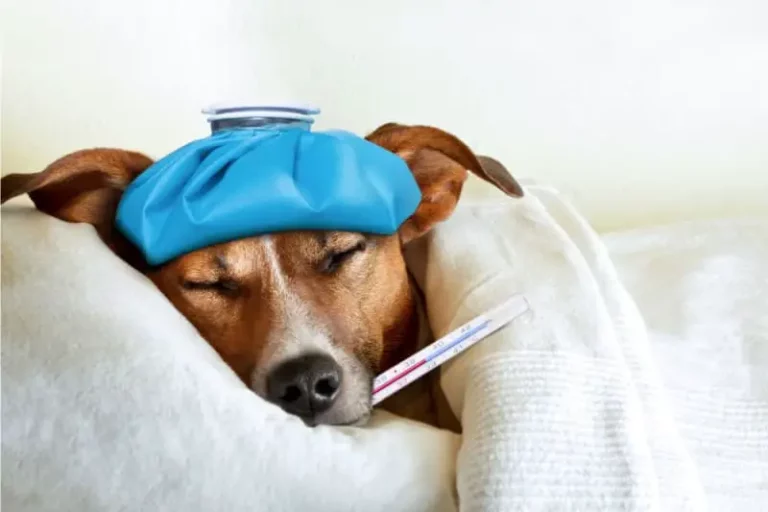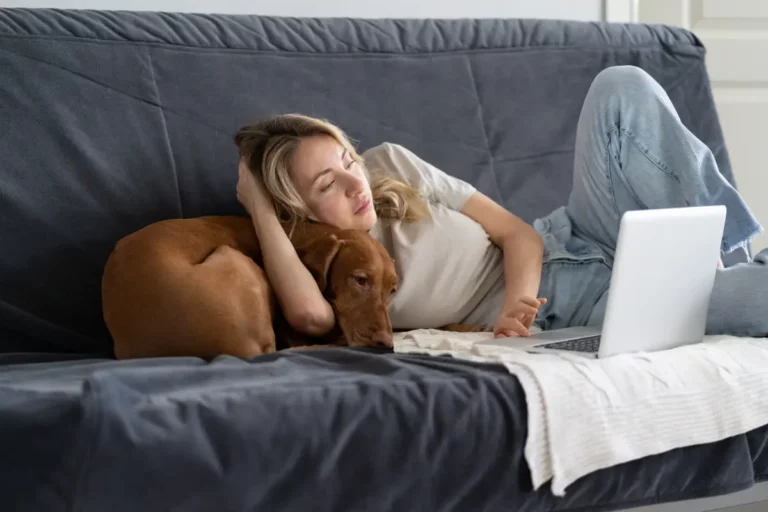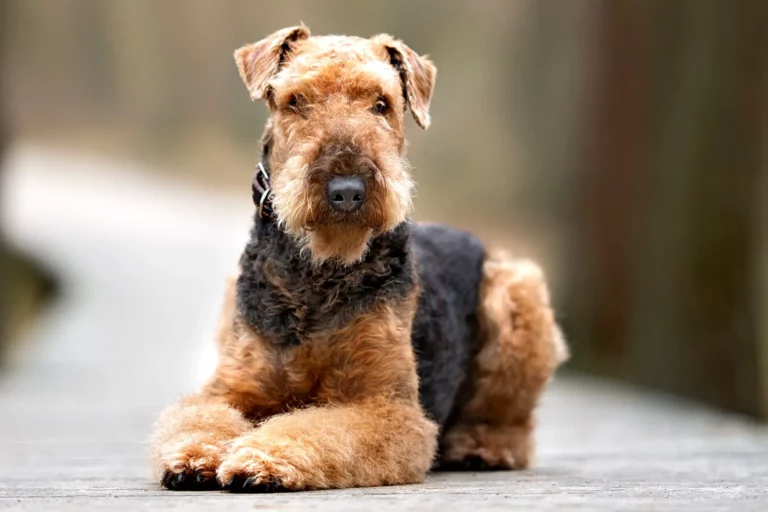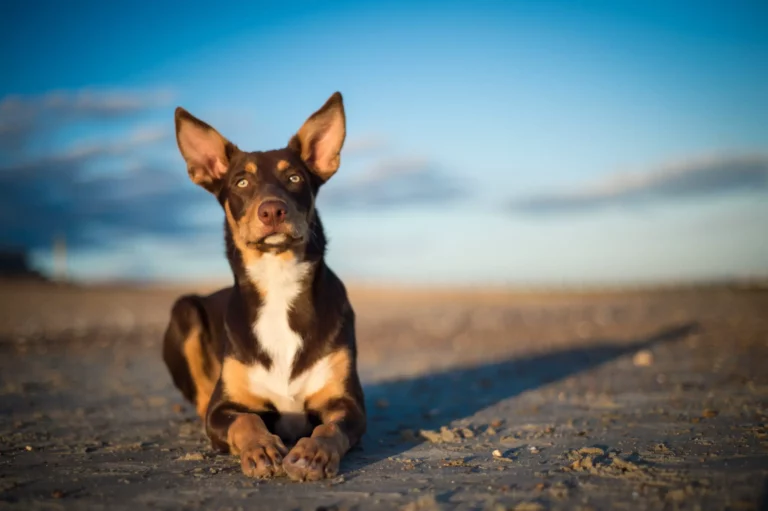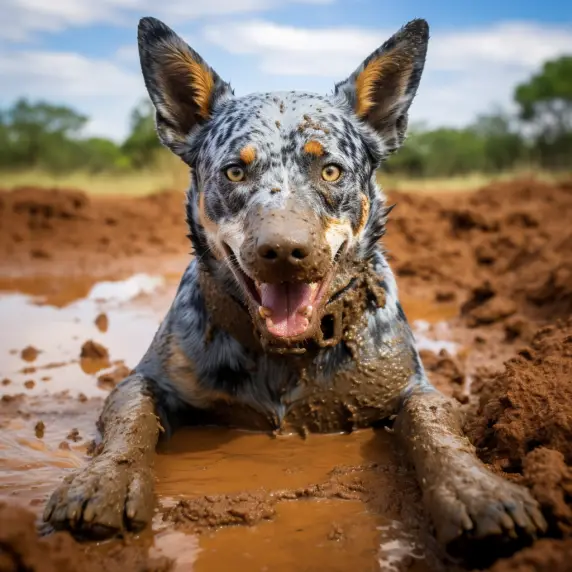Why Does My Dog Rub Its Nose on the Floor Before Eating?
Have you ever noticed your dog rubbing its nose on the floor before chowing down on their meal? This quirky behavior might have left you puzzled and curious about the reason behind it.
In this blog post, we’ll explore the various reasons why your dog may engage in this unusual activity before eating and provide insights on how you can address it.
We’ve covered key points from multiple sources to offer you a comprehensive understanding of this topic, along with new perspectives not found in the referenced blog posts.
So, let’s dive in and discover why your furry friend might be rubbing their nose on the floor before enjoying their meal!
Key takeaways
Dogs rub noses before eating due to scent-marking instincts.
It may also be due to olfactory stimulation before meals.
Some dogs do it as a compulsive behavior.
Nose rubbing can indicate medical issues; consult a vet if it’s persistent.
Reducing stress can help manage compulsive behaviors in dogs.
Common Reasons Dogs Rub Their Nose on the Floor Before Eating
1. Scent marking and communication
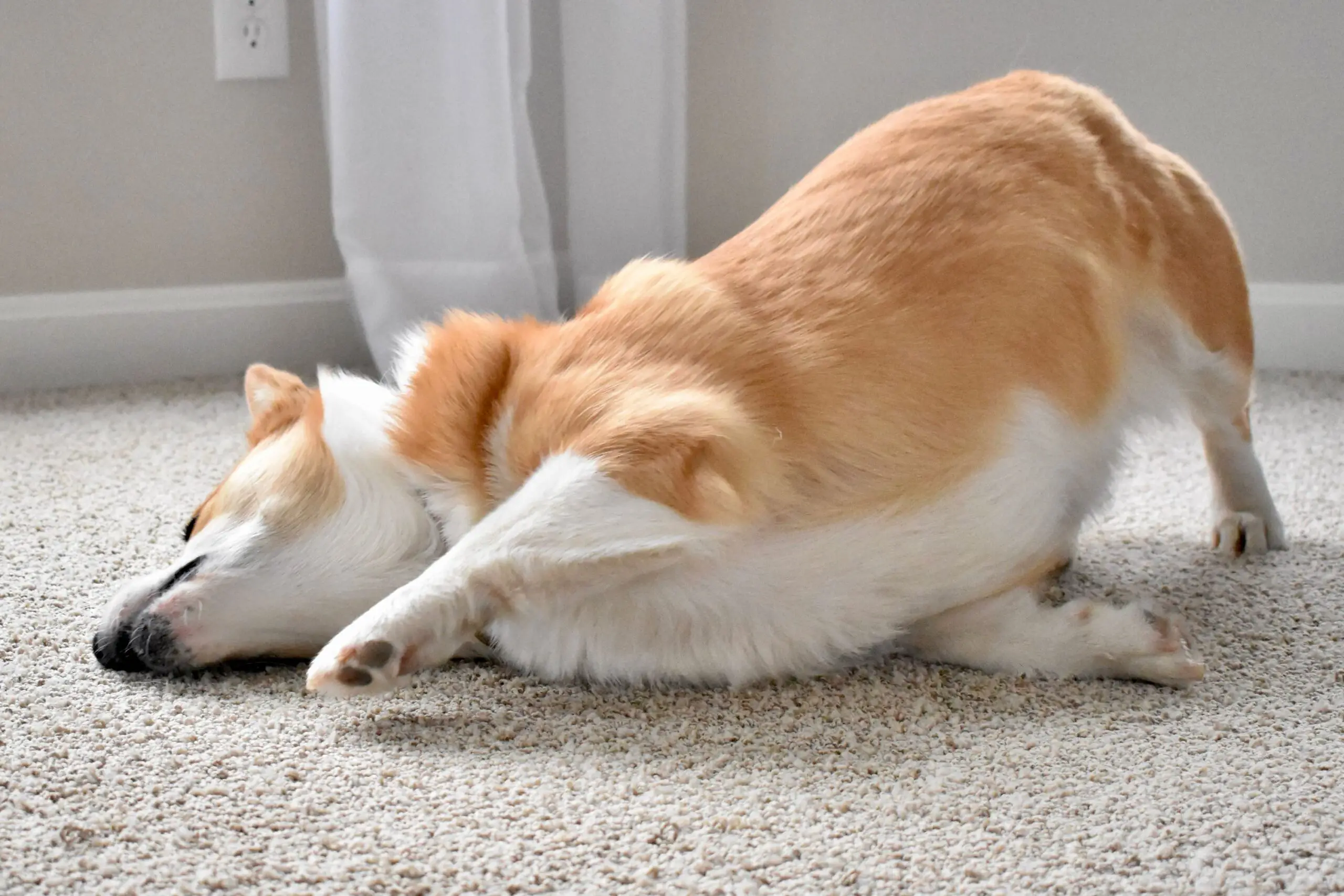
Dominance and territorial behavior: Some dogs rub their nose on the floor before eating to mark their territory, showing other animals that this is their space and their food. This behavior is especially common in multi-dog households or areas with many dogs around.
Establishing their place in the social hierarchy: By spreading their scent, dogs may also be communicating with other dogs, both in and outside the home. This could be their way of sending a message about their position in the pack or expressing their desire for companionship.
2. Discomfort or irritation
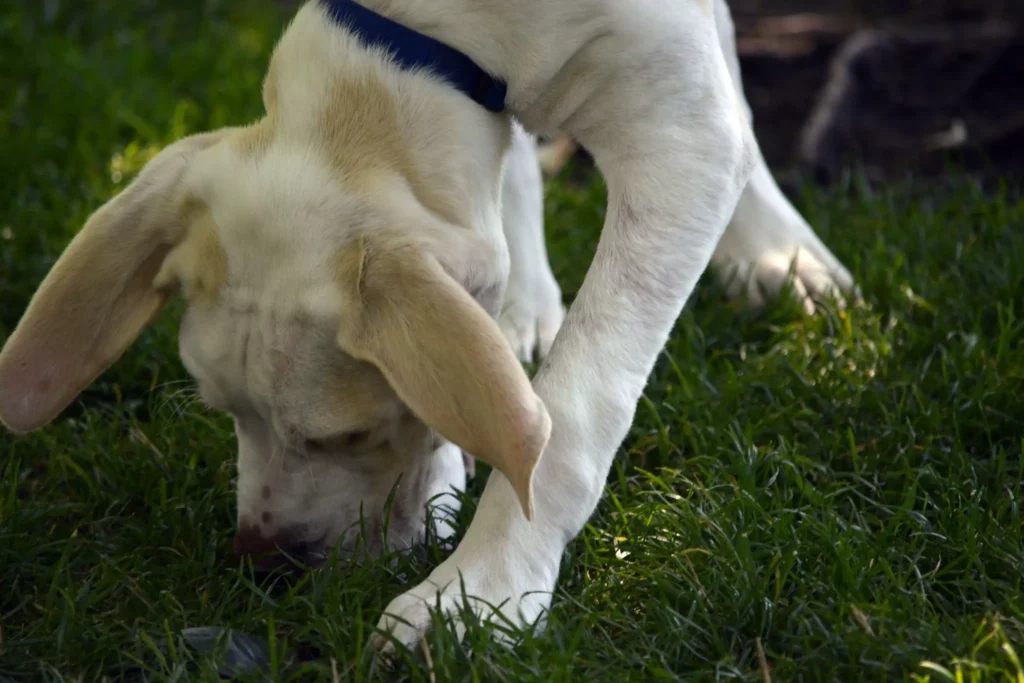
Allergies or skin irritation: Your dog may be rubbing its nose on the floor due to an allergy or skin irritation. This could cause itching or discomfort around the nose, making your pet try to alleviate the sensation by rubbing it against a surface.
Injuries or foreign objects: If there’s something lodged in your dog’s nose or if they have suffered an injury, rubbing the nose on the floor may be their way of trying to remove the foreign object or soothe the pain.
3. Anxiety or stress
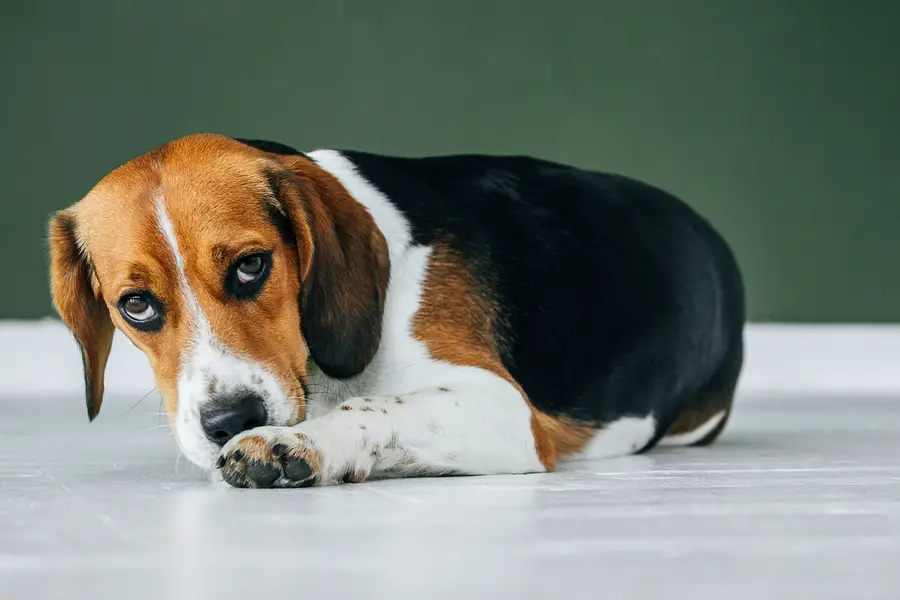
Fear of eating or being around food: Some dogs may develop a fear of eating or being around food due to past negative experiences or associations. In this case, rubbing their nose on the floor could be a displacement behavior that helps them cope with their anxiety.
Changes in environment or routine: A sudden change in your dog’s environment or daily routine can also cause stress, leading to this nose rubbing behavior. Dogs are creatures of habit, and any alteration to their usual environment may cause them to exhibit such behaviors as a way to cope.
4. Natural foraging behavior
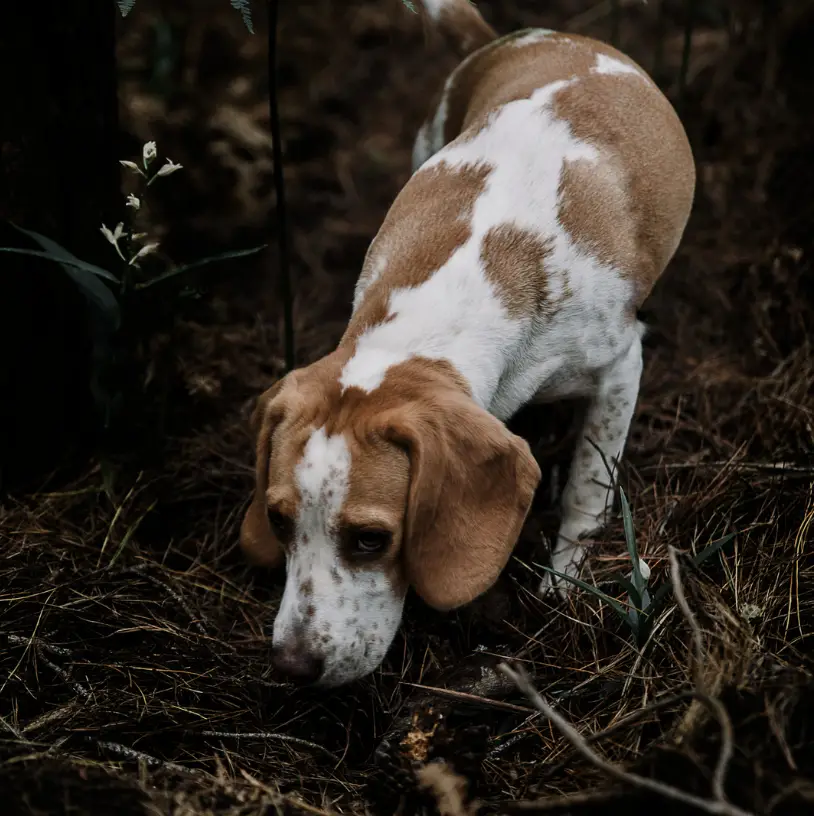
Instinctual behavior inherited from wild ancestors: In the wild, dogs and their ancestors would use their noses to forage for food, often digging and rooting around in the ground to find a meal. Your dog may be displaying this behavior as a leftover instinct from their ancestors.
Spreading the scent of food to attract other pack members: Some dogs may engage in nose rubbing to spread the scent of their food, signaling other pack members that it’s time to eat. While this behavior may not be necessary in a domestic setting, it could still be an instinctual habit for some dogs.
What is my dog thinking?
Dogs may rub their noses before eating due to a natural instinct to remove potential dirt or debris from their snout before they start their meal.
Observing Your Dog’s Behavior
Monitor your dog’s overall health
It’s essential to keep an eye on your dog’s health, particularly if they’re exhibiting unusual behaviors like rubbing their nose on the floor before eating. Make sure they are maintaining a healthy weight, have a good appetite, and are up-to-date on vaccinations and checkups.
Regular grooming can also help you spot any potential skin irritations or injuries that might be causing the behavior.
Observe for any changes in behavior or health
Pay close attention to any changes in your dog’s behavior, as well as their physical and emotional well-being. If your dog’s nose rubbing behavior is accompanied by other symptoms such as lethargy, loss of appetite, or signs of pain, it’s important to consult a veterinarian as soon as possible.
Additionally, if the behavior becomes more frequent or severe, it may indicate an underlying issue that needs to be addressed. By closely observing your dog, you can better understand the potential causes of their nose rubbing and make informed decisions about how to help them.
Addressing the Behavior
1. Consult with a veterinarian
Rule out any underlying medical issues: If you suspect that your dog’s nose rubbing behavior is due to a health issue such as allergies, skin irritation, or injury, it’s crucial to consult with a veterinarian.
They can provide a proper diagnosis and recommend the most effective treatment to help your dog feel better and potentially resolve the behavior.
Discuss possible treatment options if necessary: If a medical condition is identified, follow your veterinarian’s advice regarding treatment. This may include medication, dietary changes, or topical treatments to address the underlying issue and improve your dog’s overall health.
2. Provide environmental enrichment
Interactive toys and feeders: To encourage your dog to focus on eating rather than nose rubbing, consider providing interactive toys or puzzle feeders during mealtime. These can stimulate your dog’s mind, making mealtime more engaging and rewarding.
Mental and physical stimulation: Ensuring your dog receives ample exercise and mental stimulation throughout the day can help reduce boredom and anxiety, which may be contributing to the nose rubbing behavior. Consider incorporating regular play sessions, walks, and training exercises to keep your dog physically and mentally active.
3. Reduce stress and anxiety
Create a consistent daily routine: Establishing a consistent routine for your dog can help reduce anxiety and stress. Make sure they are fed, exercised, and given attention at regular times each day. This predictability can help them feel more secure and may lessen the need for nose rubbing behavior.
Introduce calming aids like pheromone diffusers: If your dog is experiencing anxiety, consider using calming aids such as pheromone diffusers, calming treats, or anxiety vests. These can help create a more relaxed environment for your dog and potentially reduce the nose rubbing behavior.
4. Train your dog to eat in a calm and relaxed manner
Positive reinforcement techniques: Encourage your dog to eat calmly without rubbing their nose on the floor by rewarding them with praise, treats, or affection when they demonstrate the desired behavior. Be patient and consistent with your training to reinforce the new habit.
Gradual desensitization to the food bowl: If your dog is anxious around their food bowl, gradually expose them to it in a positive manner. Start by placing the empty bowl in their eating area and reward calm behavior.
Slowly progress to adding small amounts of food and eventually work up to a full meal while continuing to reward calm and relaxed eating habits.
Frequently Asked Questions
How can I tell if my dog’s nose rubbing behavior is due to an allergy or skin irritation?
Look for other signs like excessive itching, redness, or swelling on the face or around the nose. If you suspect an allergy or skin irritation, consult with a veterinarian for a proper diagnosis and treatment.
Is it possible for my dog to develop this behavior later in life?
Yes, dogs can develop new behaviors at any stage in their life. Changes in their environment, routine, or health can contribute to the development of new behaviors.
Can nose rubbing behavior be a sign of a more serious issue?
In some cases, yes. If the behavior is accompanied by other symptoms such as lethargy, loss of appetite, or signs of pain, it is important to consult with a veterinarian as soon as possible to determine the cause.
How can I discourage my dog from rubbing its nose on the floor before eating?
Provide positive reinforcement when your dog eats calmly without engaging in the nose rubbing behavior. Additionally, consider using slow feeder bowls or puzzle feeders to redirect their focus onto the act of eating rather than the behavior.
How long does it typically take for a dog to stop rubbing its nose on the floor before eating once the underlying issue is addressed?
The time it takes for a dog to stop this behavior can vary depending on the individual dog and the underlying issue. Consistent training and addressing any health concerns are crucial for successful behavior modification.
Final Thoughts
There are several potential reasons why your dog might rub its nose on the floor before eating, including scent marking, discomfort or irritation, anxiety, or natural foraging instincts. By closely observing your dog and monitoring their overall health, you can better understand the possible causes behind this behavior.
To address the issue, consult a veterinarian, provide environmental enrichment, reduce stress and anxiety, and train your dog to eat calmly.
Remember, each dog is unique, and the best course of action may vary depending on your dog’s specific needs and circumstances. Don’t hesitate to seek the advice of a veterinarian or professional trainer if you need additional support.
By taking a proactive approach to understanding and addressing your dog’s nose rubbing behavior, you can help ensure they enjoy a happy and healthy life.

